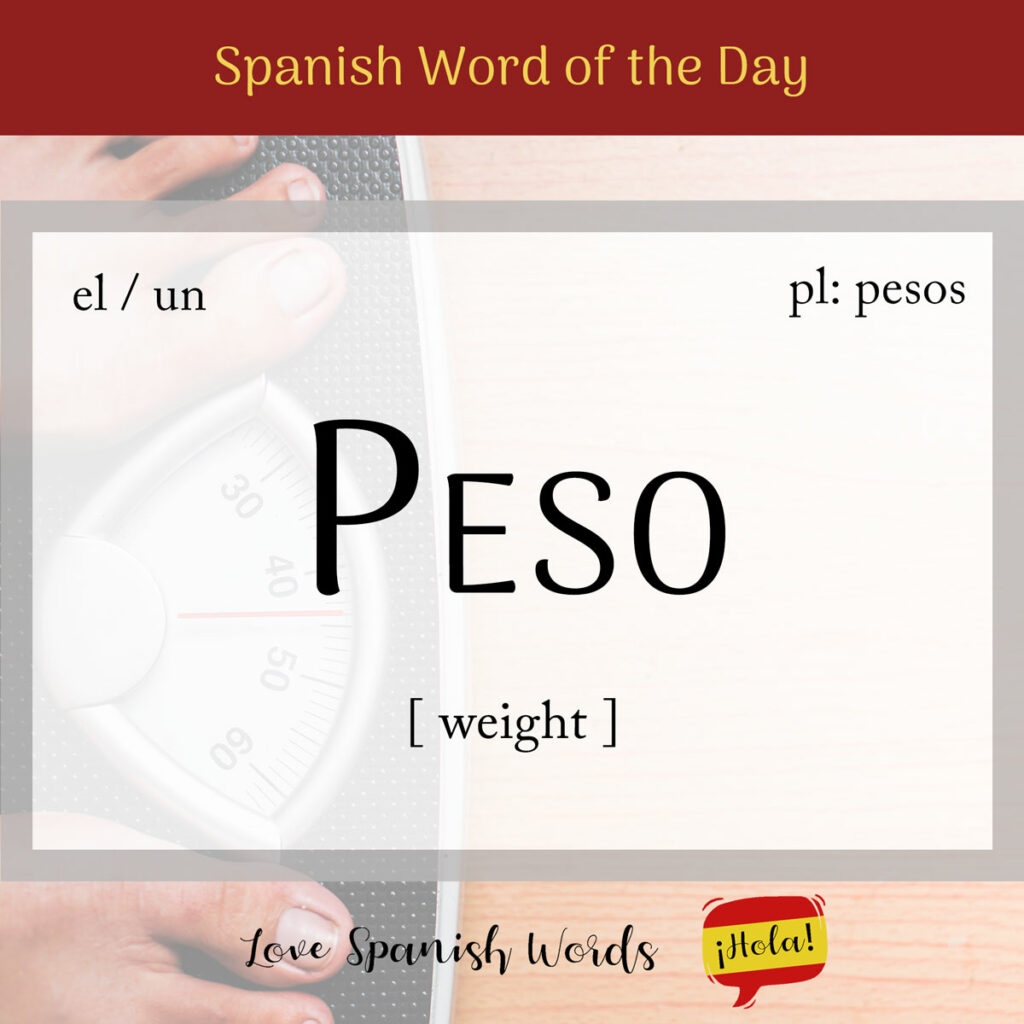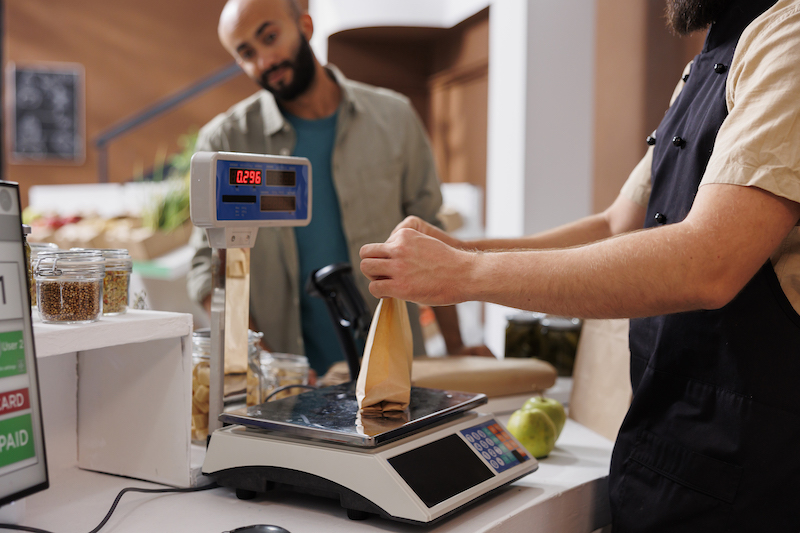If you’re a reggaeton fan like me, then you’ve probably heard the word peso many times. Peso originates from the Latin word pensum, the past participle of pendere, meaning to weigh. In its most basic sense, peso refers to the concept of weight, a notion that has extended to various aspects of life, including emotional and financial burdens.
Latin American Pronunciation
European Pronunciation

The word peso is directly linked to its Latin root, which is evident in related words like pensar (to think), which initially had to do with weighing thoughts or decisions, and compensar (to compensate), reflecting the balancing of weights in its metaphorical sense.
Peso is a masculine noun, and it uses the following articles:
- el peso = the weight
- los pesos = the weights
- un peso = a weight
- unos pesos = some weights
Mi maleta pesa 20 kilos.
My suitcase weighs 20 kilos.
Nowdays, peso primarily refers to weight, denoting the heaviness of an object or a body. In this case, the unit of measurement of weight is the gramo (gram) and is written as g. It’s common to use kilogramos (kg – kilograms) and miligramos (mg – milligrams). However, you can still use libras (lb – pounds) and onzas (oz – ounces).
Beyond physical weight, peso can also refer to metaphorical burdens, such as emotional or psychological weight. This dual usage highlights how peso captures both tangible and intangible forms of weight.
Siento el peso de la responsabilidad.
I feel the weight of responsibility.
Peso is also the official moneda (currency) of several Latin American countries, including Mexico, Colombia, Argentina, Chile, and the Philippines (historically). The use of this currency in many Latin American countries traces back to Spanish colonial influence. During the Spanish Empire, the term peso referred to a unit of weight used to measure precious metals like plata (silver) and oro (gold). In fact, the Spanish peso was originally a coin made of silver, also known as the real de a ocho (piece of eight). It became widely used throughout the Spanish colonies, including those in Latin America, due to its consistency in weight and value.
As the Spanish Empire spread across the Americas, the peso became a standard currency. After the countries gained independence in the 19th century, many retained the use of peso because it was already a well-established and widely recognized form of currency.
El peso mexicano es la moneda oficial de México.
The Mexican peso is the official currency of Mexico.
Talking about dinero (money), there are many slang terms for money across Latin America and Spain, much like bucks or dough in English. These terms vary by region and often come from cultural references or particular historical periods. Here are some of the most common slang words for money across the Spanish-speaking world:
1. Plata = Generally used in Latin America, especially Argentina, Colombia, and Peru, it means silver, reflecting the historical connection between silver and currency.
2. Lucas = Used in Chile, Argentina, and Colombia. It refers specifically to a thousand units of currency.
3. Pasta = Commonly used in Spain to refer to money, similar to cash in English.
4. Guita = Another Argentine term for money, guita is informal and used in everyday conversation.
5. Lana = It literally means wool, but it’s widely used in Mexico to refer to money, similar to how English speakers use bread or dough.

Spanish idioms featuring ‘peso’
A peso de oro
Literal translation: at the weight of gold
English meaning: at a high price
Dar en el peso
Literal translation: to hit the weight
English meaning: to hit the nail on the head
Hacer peso
Literal translation: to make weight
English meaning: to help or add to a situation or argument
Estar con el peso encima
Literal translation: to have the weight on top
English meaning: to be under pressure
Pesar un muerto
Literal translation: to weigh a dead person
English meaning: Refers to handling something very difficult or carrying a heavy responsibility.

